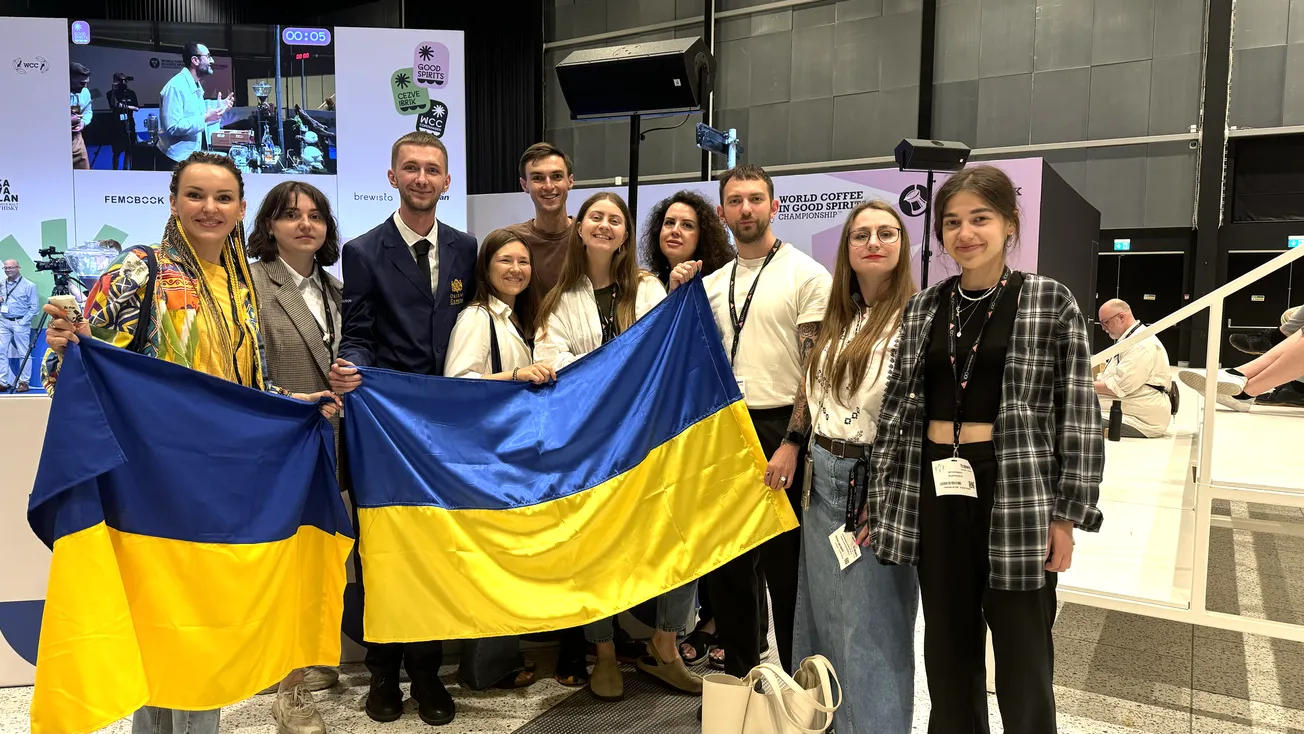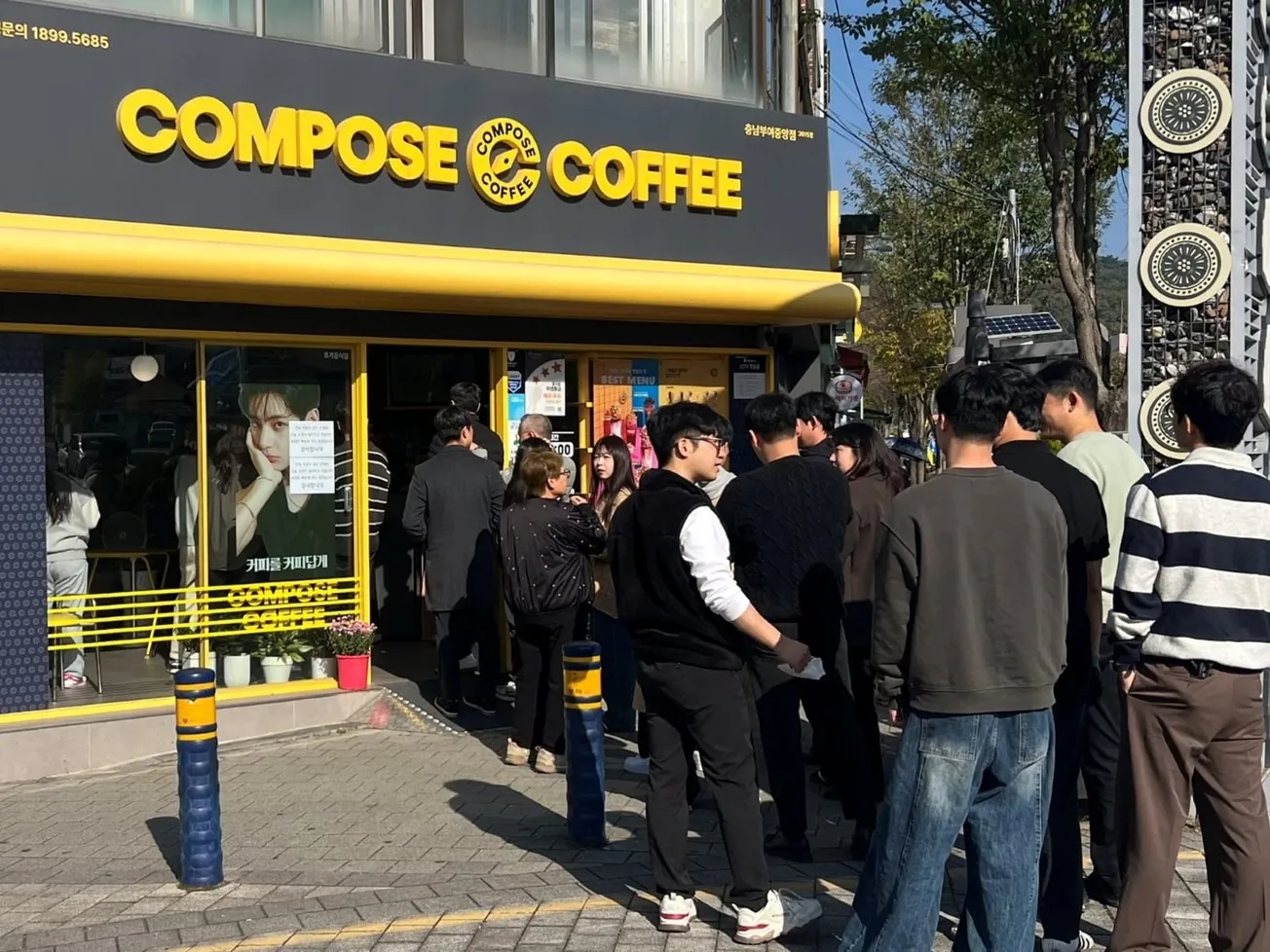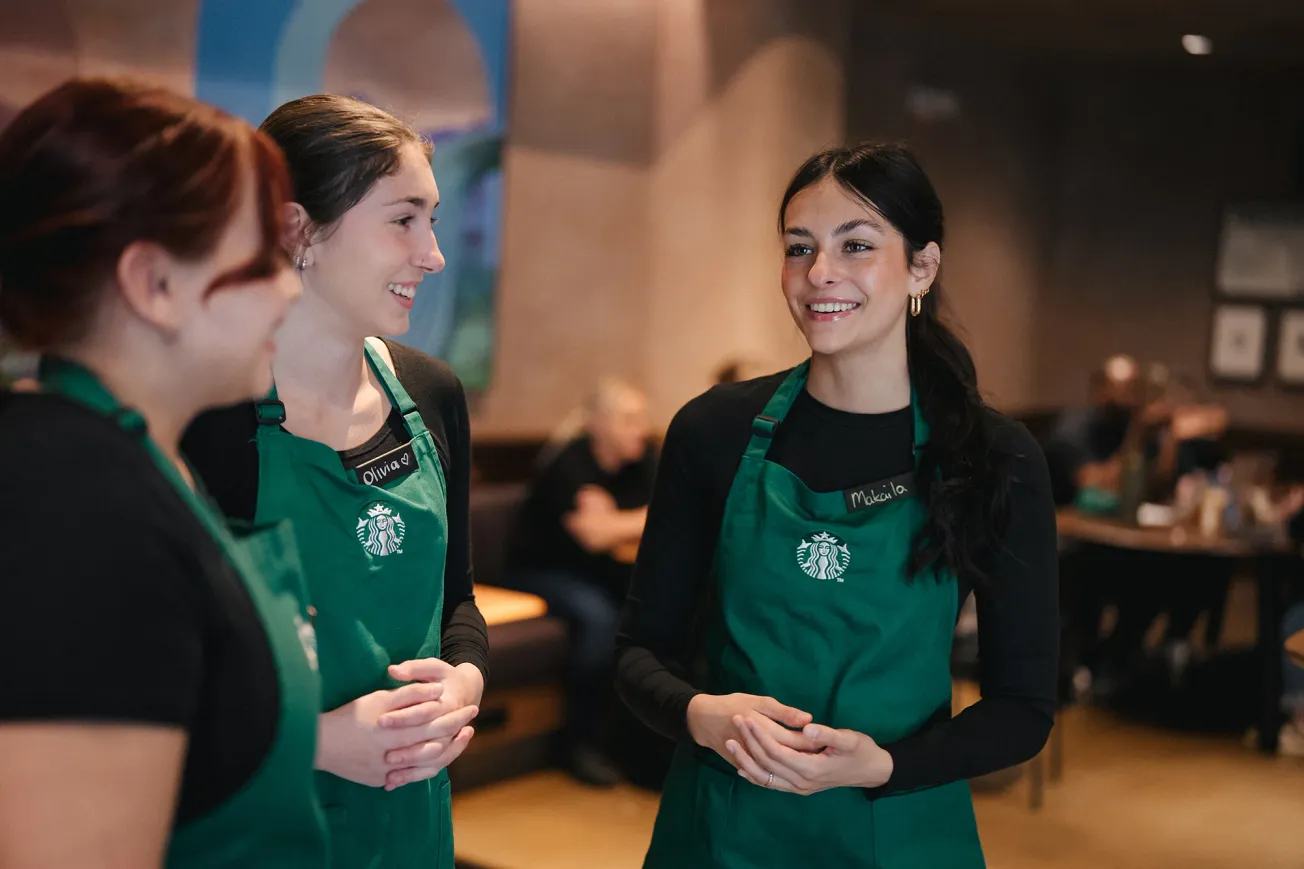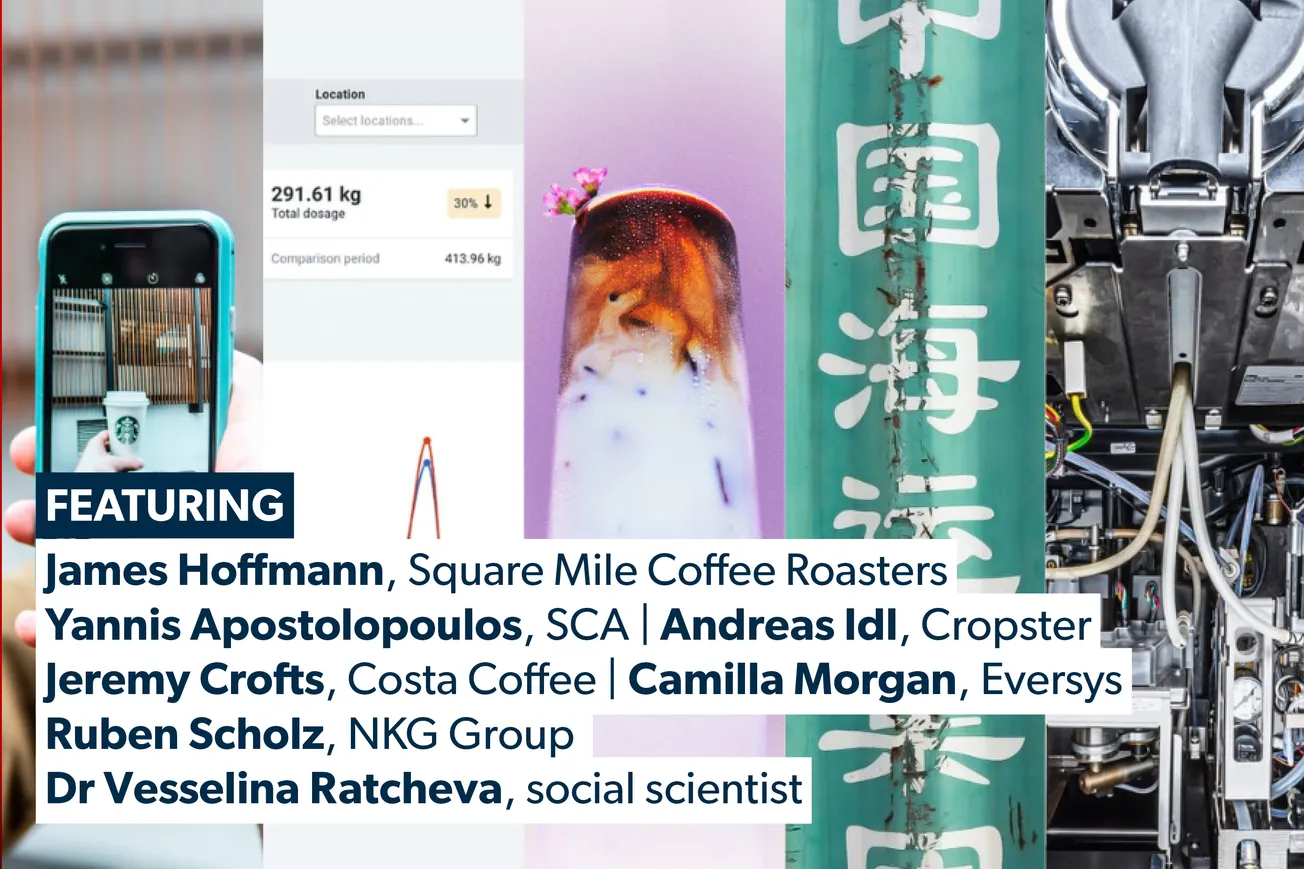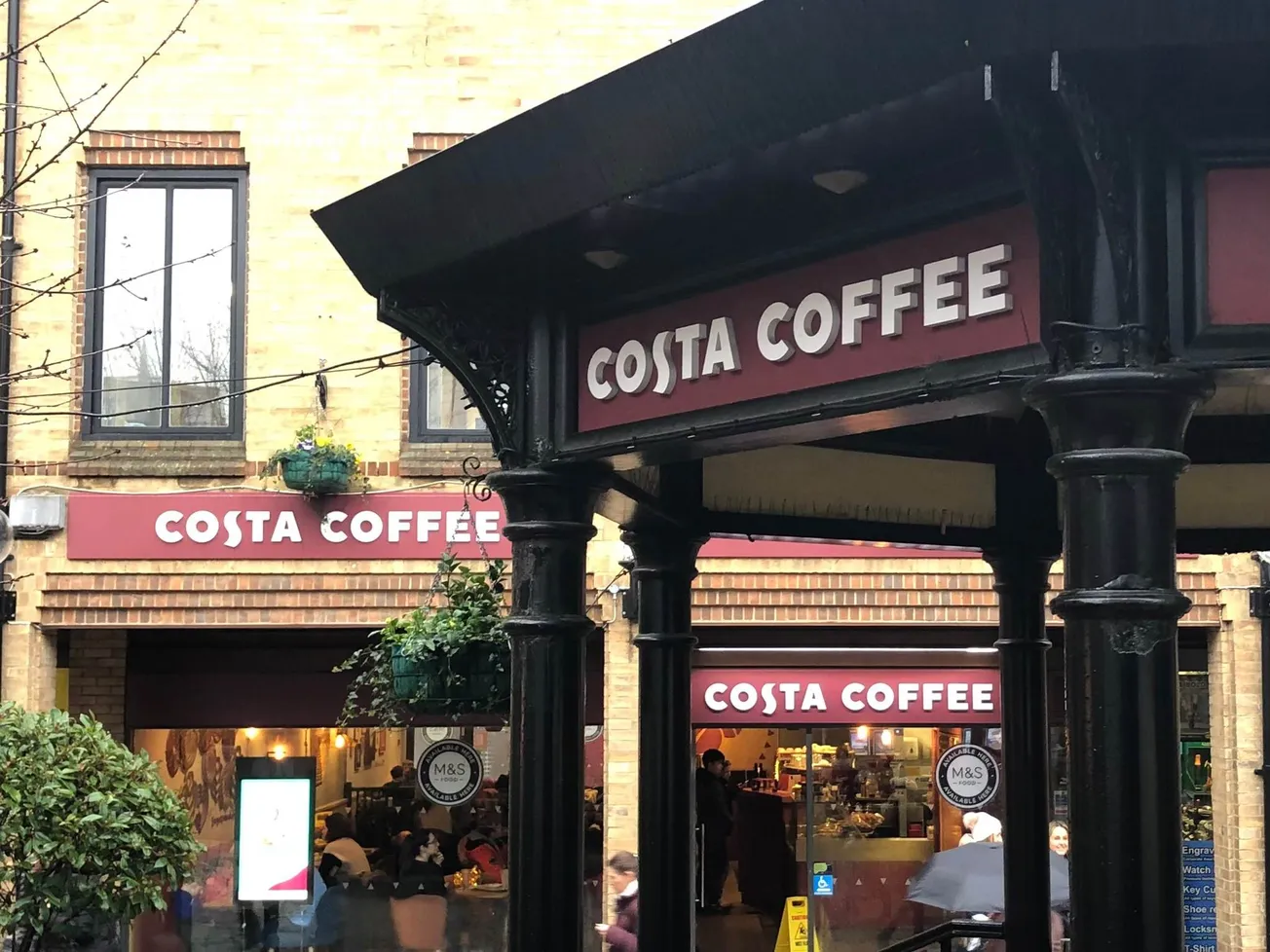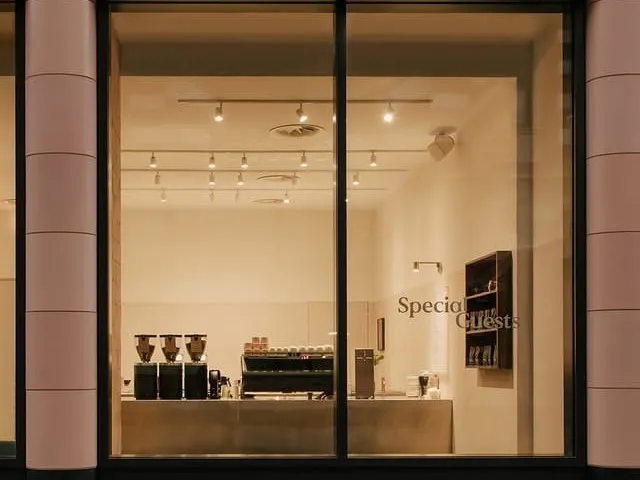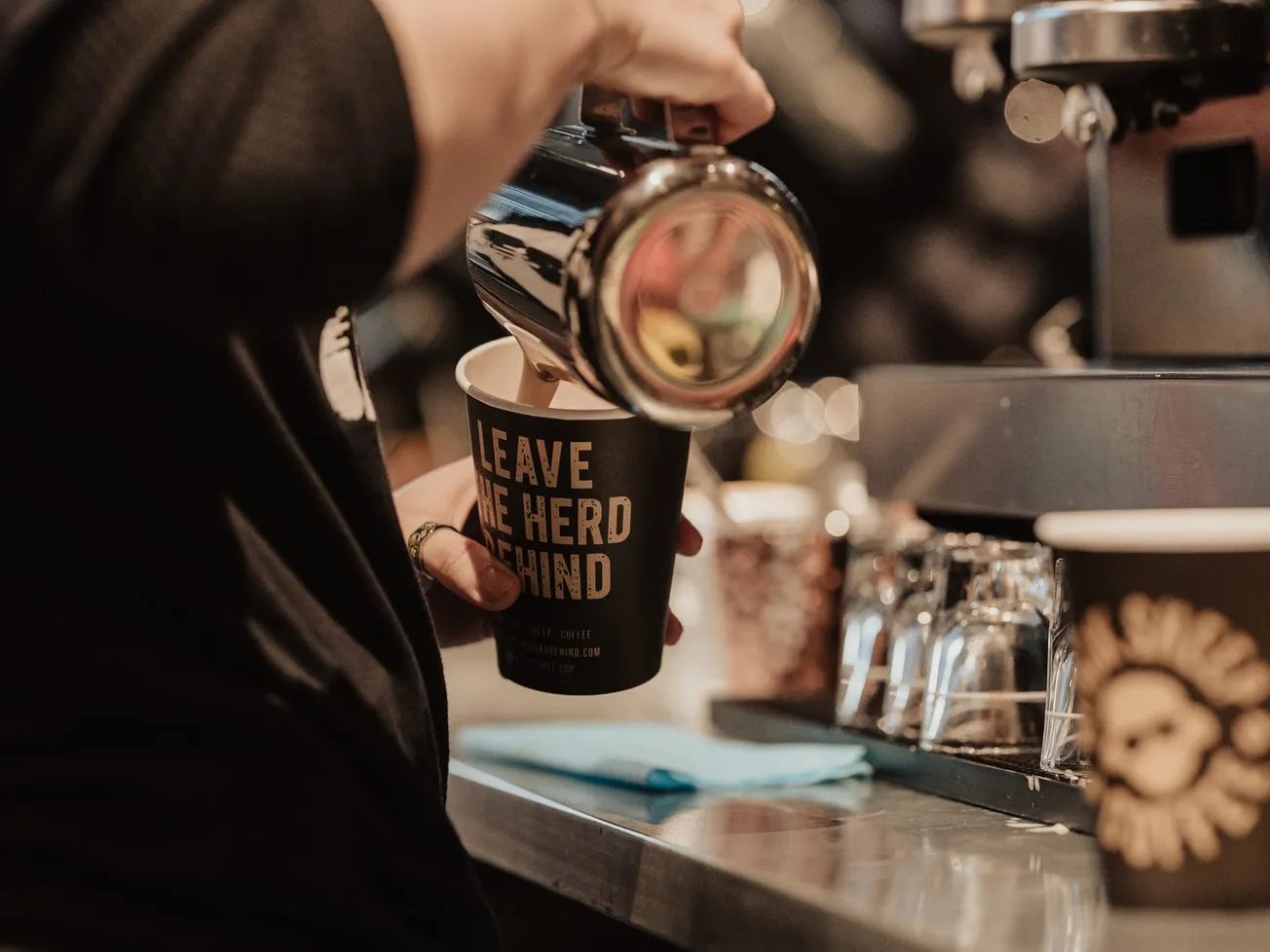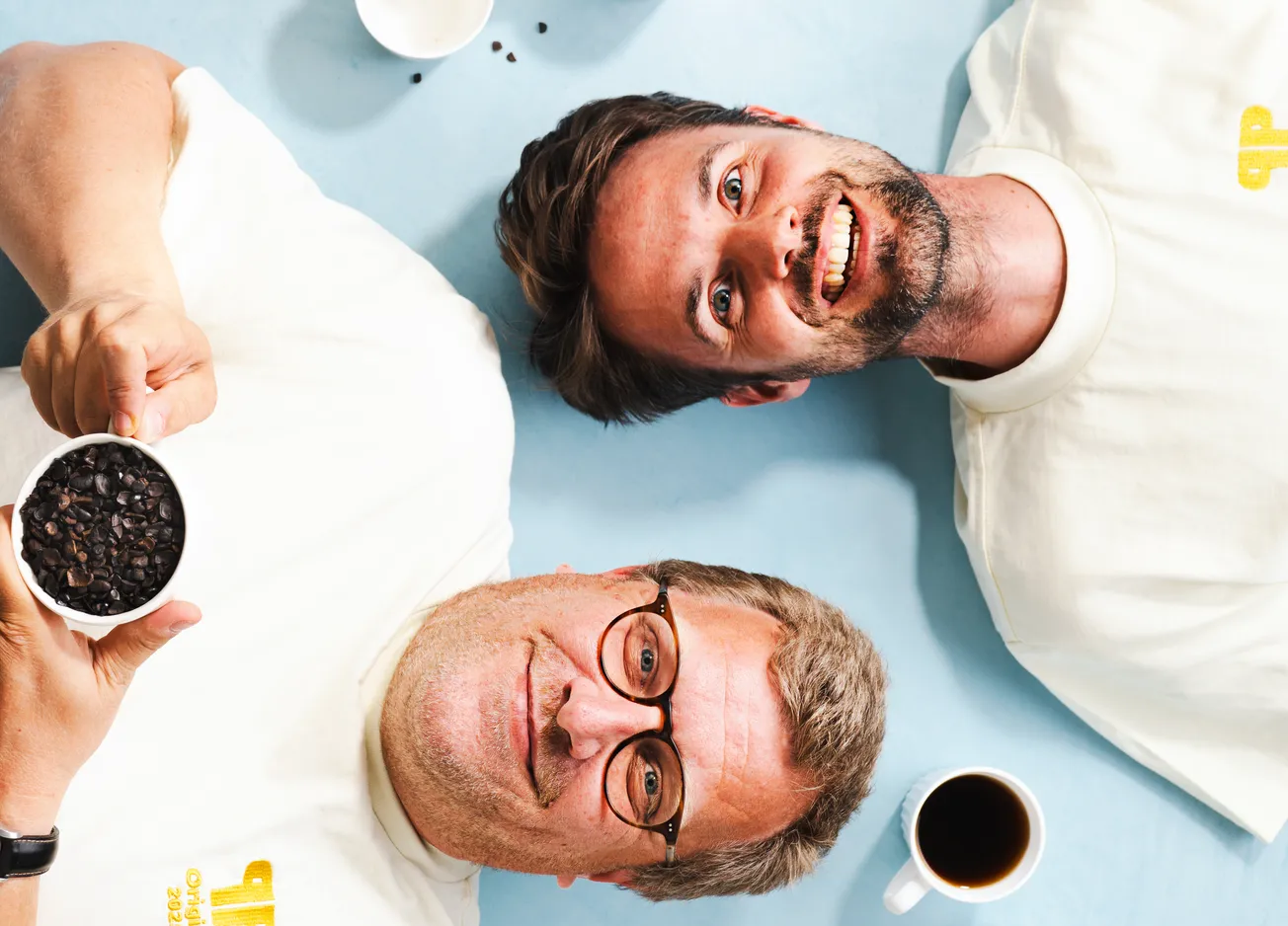Ukraine’s coffee industry is playing a vital role in strengthening the nation’s resolve amid the tragedy of Russia’s war and has achieved remarkable growth in the face of adversity. Tobias Pearce met the Ukrainian coffee industry leaders determined to build a bright future for their country
“I remember the day I saw helicopters shooting missiles at our roastery,” recalls Volodymyr Yefremov, founder of Idealist Coffee, a specialty coffee roaster with ten coffee shops across Kyiv. “It was crazy, I couldn’t believe we were in this situation.”
Miraculously, despite significant damage to its roastery building, Idealist Coffee’s equipment largely survived when Russia began its full-scale invasion of Ukraine on 24 February 2022 – the start of an ongoing nightmare for a nation that has long leaned west towards European integration and EU membership.
Coffee, premium hospitality and café culture have been key aspects of this cultural pivot by the former Soviet state, and today, Ukraine is home to a thriving coffee shop market. Despite the devastation caused by Russia’s war, World Coffee Portal data shows Ukraine’s branded coffee shop market grew 8% to exceed 350 outlets over the last 12 months. There is also a thriving specialty scene embedding higher quality across thousands of independent businesses, and even emerging at railway stations and motorway services.
The resilience of Ukraine’s coffee industry is testament to the resolve of many dedicated individuals who, long before the war, were working to establish their country as a world-class destination for coffee and café culture.
Among them is Irina Borzilova. Starting her coffee career as Chief Commercial Officer for Jura Ukraine in 2009, Borzilova founded her own venture, Liberica International LLC, in 2018 and works with major coffee machine brands, including Eversys, Pentair, Urnex and Hardtank. Today, she lives with her young son in London, UK, where she maintains strong links with Ukraine’s coffee industry.
“In 2018, my colleagues considered me crazy because Eversys was an extremely expensive coffee machine for the Ukrainian market. Most operators were looking for an affordable super-automatic solution costing €4,000-€5,000, or even lower, but I saw great potential in Eversys.”
“We had 400 tonnes of coffee in our warehouse 2km away from the front line”
Dmytro Slukin, founder, !FEST Coffee Mission
That hunch turned out to be correct as large fast-food chains, such as McDonald’s, began installing premium coffee machines across their restaurants in Ukraine. Professional super-automatics are now the backbone of Ukraine’s sizeable petrol station coffee network, which is led by OKKO’s 400 locations that serve approximately 35 million coffees a year.
Underlining continued strong demand for premium espresso-based beverages across Ukraine, Borzilova says another major petrol station operator with 100 locations recently invested in 50 super-automatic machines worth around €37,000 each. Data from Ukrainian POS provider, Poster, shows that while the number of restaurants and bars has declined since the outbreak of war, the overall number of coffee shops in the country increased 35% between December 2022 and April 2024.
However, more than three years of conflict have inevitably taken their toll on Ukraine’s coffee industry. Borzilova estimates there are now around 1,500 commercial coffee roasters still active in the country, down from around 2,000 at the start of 2022.
Zaporizhzhia, Donetsk, Luhansk and Dnipro were all attractive cities for coffee businesses before the war. However, with many eastern regions under Russian occupation or dangerously close to the front line, there has been a migration of coffee and hospitality businesses westwards, especially to Lviv, where there are fewer Russian missile strikes and civilian curfews are less strict.
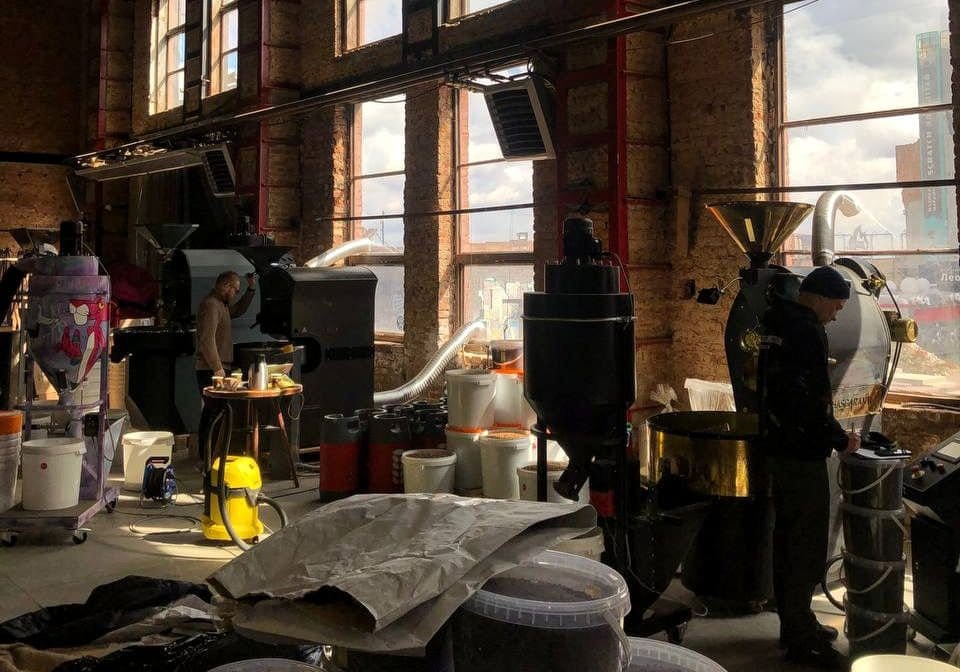
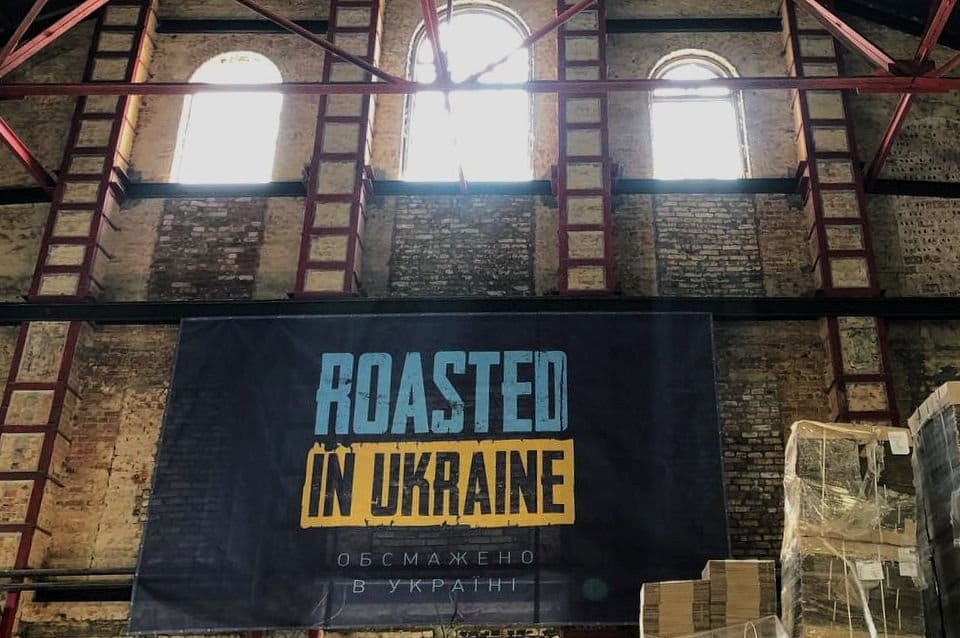
Coffee roaster co-working spaces established by !Fest Coffee Mission in Lviv, Ukraine | Photo credit: !Fest Coffee Mission
An unstoppable industry
Even amid the crisis of conflict, premium and specialty coffee consumption is growing in Ukraine. Despite more than 10 million Ukrainians being displaced by the war, data from the State Customs Committee shows Ukraine imported nearly 36,000 tonnes of coffee in 2024, valued at $197.2m, up from 32,000 tonnes in 2023.
Founded by Dmytro Slukin in 2018, !Fest Coffee Mission has played a significant role in keeping Ukraine’s coffee industry in business. Specialising in micro-lots, the green coffee trader and roaster was an early importer of specialty coffee into Ukraine and has offices in El Salvador, Poland and Turkey. Today, it is in the process of establishing a regional headquarters in Argentina.
Having been based in El Salvador for the last 10 years, Slukin was able to coordinate his international team across Central America and Africa during the early stages of Russia’s invasion. “At the beginning of the war, we had around 400 tonnes of coffee in our warehouse 2km away from the front line. We were very lucky that we were not bombed,” he says.
“Despite the ongoing war, the number of coffee shops is growing”
Volodymyr Yefremov, founder, Idealist Coffee
“We also had 20 containers at sea bound for the port of Odessa, which was bombed during the first days of the invasion. We lost some containers for months and later found them in Abu Dhabi. For the first six months, it was a disaster, mentally and of course, financially as well.”
Working around the clock, Slukin and his team were eventually able to coordinate the transportation of their coffee away from the front line. “We were ready to pay anything to transport 100, 20, even ten bags of coffee to Lviv,” he says.
Slukin then set out to assist his coffee industry colleagues. In 2022, !Fest established coffee roaster co-working spaces in Lviv to support businesses that had lost premises and equipment in the invasion. “I feel ashamed when I hear that many of our partners have lost their premises during the war and we have not,” he says.
“We proposed to any coffee business on the front line, concerned about the Russian advance or bombings, that they could relocate their businesses for free to our locations in Lviv,” Slukin explains. Among them was Gemini, one of Ukraine’s largest coffee roasters and tea suppliers, which moved its 120kg roaster from Kyiv to Lviv. Of around 200 specialty coffee roasters in Ukraine, Slukin estimates that !Fest now works directly with 130 of them.
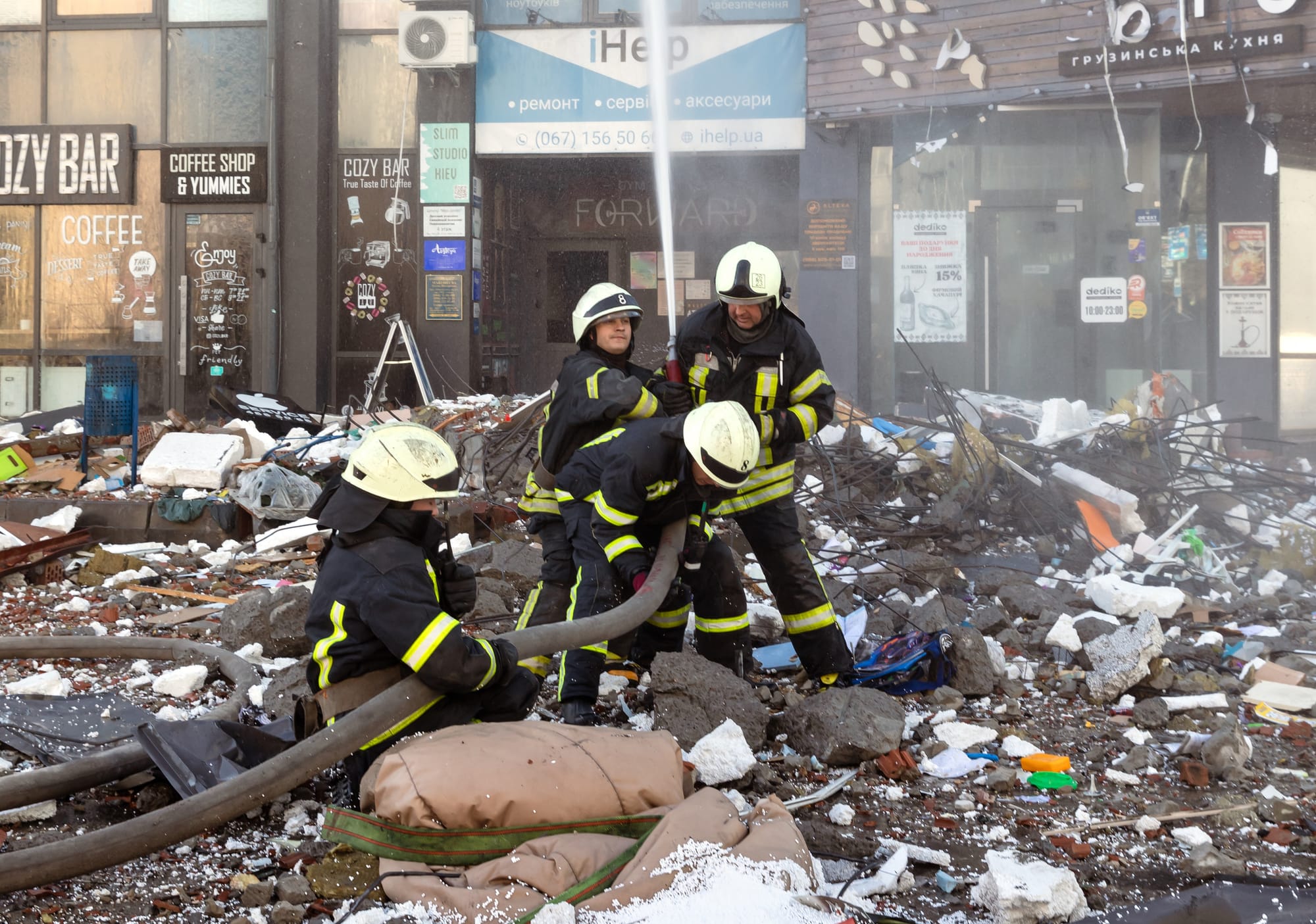
A grassroots movement
Unlike in many European markets, where start-up costs to open a coffee shop are high, Ukraine’s young entrepreneurs have typically faced fewer financial barriers, which has enabled a network of specialty independents to flourish.
“You can buy a used La Marzocco and open a coffee shop for a couple of thousand dollars. The investment is pretty low in Ukraine, and that’s why the specialty market has grown,” says Slukin, who estimates specialty coffee today makes up 3-4% of the total Ukrainian coffee market by volume.
Among those young entrepreneurs is Oksana Vitynska, founder of Black Honey Coffee, a specialty coffee roastery with nine outlets, six of which are franchised. Fresh from winning the national Brewers Cup championship in 2017, Vitynska put together a business plan and pitched it to her then-employer.
“They agreed to invest $50,000. That’s how Black Honey began – with a small team of five people and a clear vision,” she says. “Coffee is not just a product for us – it’s a craft, a culture and a way to bring people together. As we continue to grow, I remain committed to innovation, education and building a strong specialty coffee community.”
Black Honey opened its first coffee shop in Kyiv and in 2018 launched its own roasting facility in Lviv before opening further venues in Zaporizhia and Khmelnytskyi. “The war changed our plans,” says Vitynska. “The coffee shop in Zaporizhia was hit by a Russian rocket. The coffee shop in Khmelnytskyi closed due to a lack of customers and an outflow of tourists.”
Despite tough times, Black Honey continues to thrive in Lviv and today employs around 100 people. In fact, Vitynska says specialty coffee is more popular than ever as Ukrainians seek community, unity and comfort during the war.
“The growth of coffee shops gives us the opportunity to work, pay taxes, create jobs and help the military,” she says. “What’s really powerful is that growth didn’t stop with the war. In many ways, coffee shops became places of strength and connection, small but important reminders that even in difficult times, quality and care still matter.”
It’s a sentiment echoed by Volodymr Yefremov, who founded Kyiv-based Idealist Coffee in 2019. “Before the war, specialty coffee was just a cool drink with a nice taste for many people. Now, it’s the memory of better times, because when you drink coffee, you feel stability,” he says.
“It’s nearly impossible to find professional baristas”
Irina Borzilova, founder, Liberica International
“Despite the ongoing war, the number of coffee shops is growing, especially in safe regions. Many adapt by using generators, alternative brewing methods and other supplies,” he adds.
Yefremov’s central Kiev coffee shop frequently distributes coffee to the local community, volunteers and soldiers. “We share our product, not for the money, but for the idea, and to help those in need,” he says.
And, when it came to coffee competitions, Ukraine took the fight to Russia on a different front. As Ukraine’s national Specialty Coffee Association (SCA) coordinator 2021-2023, Dmytro Slukin successfully lobbied the SCA to ban Russia from international competitions in 2022.
“I want to say a huge thanks to the global SCA. During the first weeks of the invasion, when nobody knew what to do, the SCA suspended the participation of Russia in any kind of SCA activities,” he says.
Volodymr Yefremov is also involved with the Ukrainian SCA chapter as a competition judge coordinator. With SCA judges unable to travel to Ukraine because of the war, the country’s championships faced an uncertain future as they could not be ratified. However, with the help of Mexican SCA judge José Arreola, World Brewers Cup judge Nadya Shlapak, and Ukraine National Coordinator, Krystyna Radchuk, Ukraine’s SCA chapter was able to certify its competition programme remotely.
“Without José’s support, our championships wouldn’t have been official. Since our national team has strong judging experience and our champions perform well, everything went smoothly. Even with the time difference, José watched all the performances online, while Nadya helped on-site. If there were any questions or disputes, José responded quickly and guided us in real time,” he says.
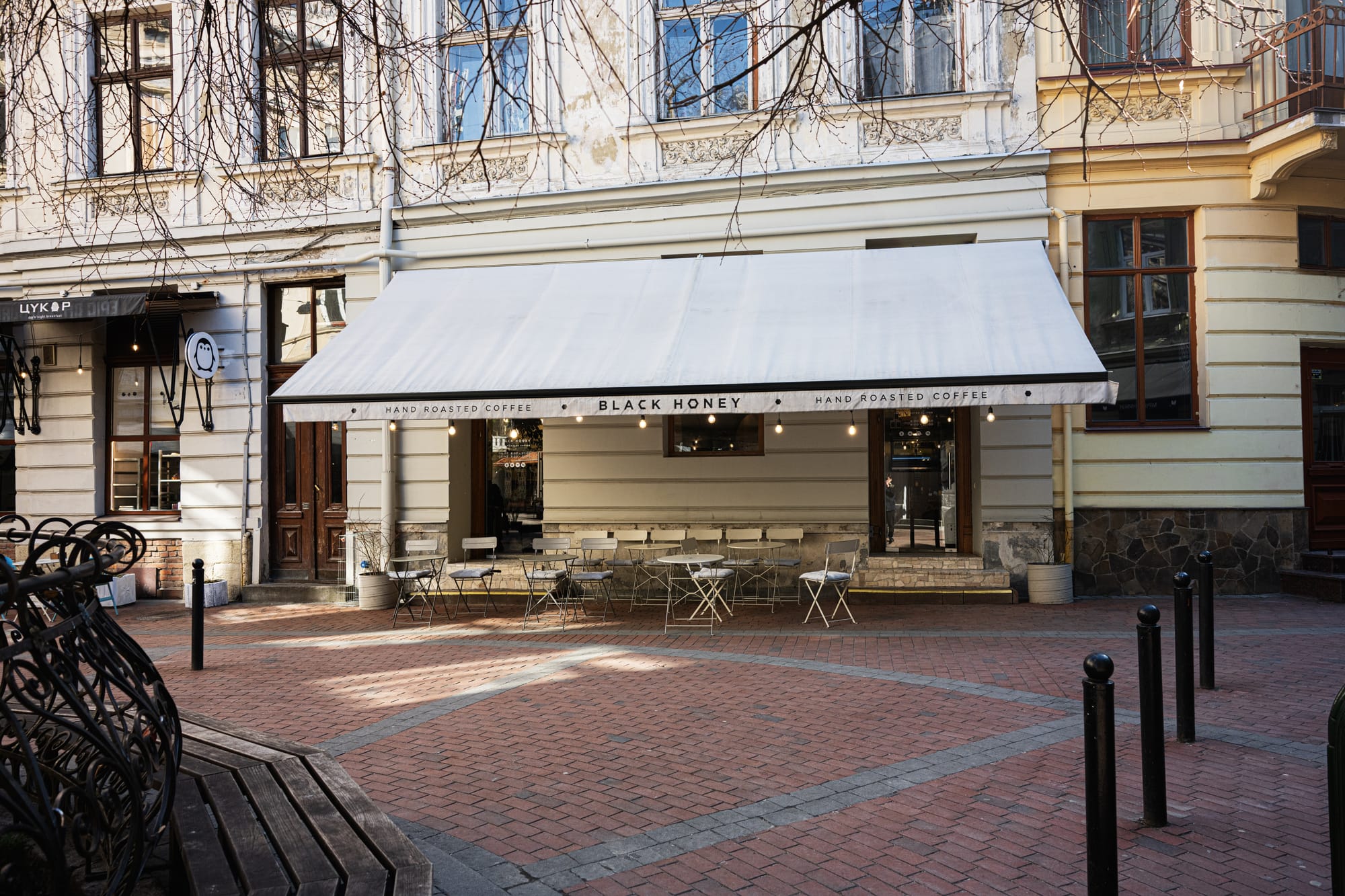
The long road to peace
It’s clear that Ukraine’s coffee industry is moving forward under the most difficult of circumstances. Nevertheless, the challenges that war brings are undeniable. Among them is a severe lack of skilled technicians for equipment maintenance, baristas and store staff.
With military conscription an ever-present reality, “men are under tremendous pressure,” Borzilova says, outlining that hospitality roles are not listed as ‘critical’ by the government. “There are not enough people, especially technicians and engineers, and it’s nearly impossible to find professional baristas”, Borzilova says, adding that the skills shortage has led to salaries increasing threefold since the start of the war in 2022, adding further pressure on operators.
Tax rises due to the war have also placed a high burden on owner-operators, with Borzilova estimating that scores of independent and small businesses are closing every month. Yet, Ukraine’s coffee industry continues to defy the odds and has become an important part of the nation’s resistance.
“Coffee shops became places of strength and connection”
Oksana Vitynska, founder, Black Honey Coffee
“Of course, the war has meant that the development of specialty coffee in Ukraine has slowed. But there are fewer parties because of the war, people are drinking less alcohol and specialty coffee is filling that gap to give people a boost,” Slukin observes.
Asked about the future of specialty coffee in Ukraine, Black Honey’s Vitynska is both hopeful and ambitious. “Ukrainian roasters have the potential to make their mark on the international stage, and expanding training programmes for baristas and enthusiasts could position Ukraine as a centre for coffee education in Eastern Europe,” she says.
Slukin is also unequivocal in his optimism. “The situation is very sad, but we will survive. Dictatorships always fall. The truth will always win sooner or later.”


